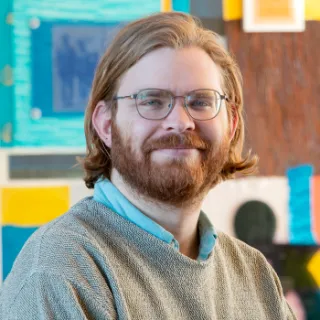In 2021, Minnesota Compass partnered with the Minnesota Office of Higher Education (OHE) to learn more about adult learners—students who are age 25 and older—their experiences, the challenges they face, and ways OHE can better engage current and prospective adult learners. OHE wanted to gain more insight and resources to help reach the State of Minnesota's educational attainment goal of 70% of Minnesota adults achieving a postsecondary certificate or degree by 2025. We convened listening sessions, developed a communications toolkit, built relationships with individuals and organizations that provided insight into the experiences of adult learners, and co-developed expanded ways to engage these learners, particularly those from historically underserved and underrepresented populations. Here are the key findings from those efforts, as well as suggestions for ways to modify existing policy and practice to better support adult learners.
What previous research tells us
We conducted a literature review to learn what existing research said about barriers identified across regions, types of postsecondary education, and research methodologies. These barriers informed the framework for the successive phases of the project and include:
- Expense. The costs of postsecondary education can be too high for some individuals, particularly those with other financial commitments.
- Time constraints. The time commitment associated with obtaining postsecondary credentials can be challenging to balance with other scheduling demands.
- A lack of belonging. Adult learners may not see themselves reflected in existing narratives about postsecondary education.
- A poor investment. Adult learners may not see postsecondary credentials as a wise investment of time and money.
What we heard in our listening sessions
We conducted listening sessions that included 48 participants and produced over 20 hours of recorded conversations. We analyzed this qualitative data and identified seven prominent themes of the help adult learners need to successfully enroll in and complete postsecondary education:
- Help me pay for it. Adult learners need help navigating how to pay for postsecondary education.
- Help me juggle family needs, like child care. Adult learners are more likely to face increased barriers to enrollment and completion due to child care and family commitments (time and cost).
- Help me fit classes into my schedule. Access to multiple modes and schedules for completing postsecondary education, and support for learners pursuing non-traditional modes and schedules is important to the success of adult learners.
- Help my employer understand the importance of higher learning. It may be useful for institutions and state agencies to bolster employer and industry partnerships to promote postsecondary education.
- Help me get the most out of my education. Adult learners are interested in “getting the most” out of postsecondary education, from a financial and career fulfillment standpoint.
- Help me figure out the best pathway. Adult learners’ postsecondary goals are mismatched with traditional postsecondary structure and requirements.
- Help me see myself in the role of an adult learner. Outreach, communication, and relationship-building efforts should be pursued to address the postsecondary narrative mismatch for adult learners.
Relationship-based, person-centered support
Numerous stakeholders mentioned that relationship-based, person-centered supports at every step of an adult learner’s postsecondary education could help address many of the barriers noted.
Most often, suggestions for addressing barriers included a counselor getting to know prospective or current adult learners, and making a plan for their postsecondary education based on their current realities (financial considerations, family situation, and so on) and their career and financial goals. We offered the following recommendations:

Creating a network to support the adult learner
In addition to engaging students, this project highlighted the usefulness of a network of practitioners who work with adult learners either directly or indirectly via advocacy or the creation of institution or state-level policy. This network would serve as an opportunity to share information, build relationships, or provide feedback to the state legislature and state agencies about policies and practices. Throughout our one-on-one and small group meetings, We identified groups in the postsecondary education ecosystem that could provide useful insight:
- Students
- Mental health advocacy organizations
- Tribal colleges
- Representatives from cultural communities
- Representatives from the business community
- Funders
- Representatives from greater Minnesota
- State agencies and representatives from the state college and university system
This shouldn’t be considered an exhaustive list. As Wilder Research learned over the course of this project, inclusivity when developing policies, practices, and programs to support adult learners has an important positive impact on experiences and outcomes, for individuals and our state as a whole.
Next steps
If you’re wondering how you and your institution, community, or business can help overcome obstacles for adult learners, We compiled a list of barriers to adult learner engagement, and possible solutions:
.
Interested in reading the entire report with more detailed information about our findings? It’s located here.

